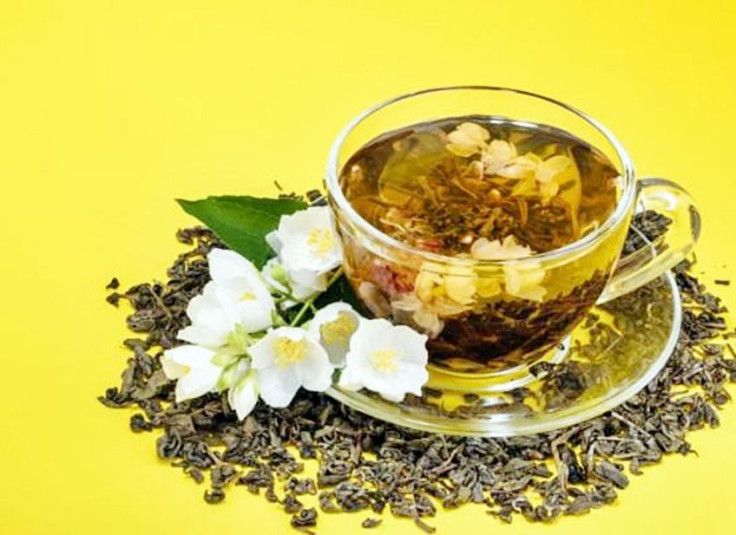7 Jasmine Tea Health Benefits: Weight Loss, Anticancer Properties And More

Jasmine tea is arguably the most famous scented tea in the world and one with its own share of broad health benefits.
Typically based on green tea, jasmine tea is a tea scented with the aroma of blossoms from the fragrant jasmine plant (or sampaguita). Because of this admixture, jasmine tea tastes subtly sweet and has a highly fragrant aroma.
The ancient Chinese, especially those from the city of Fuzhou, the capital of Fujian province, considered jasmine tea a poison antidote. Such is the imprint of jasmine tea on Fuzhou culture that in the Fuzhou dialect, the word for buying medicine literally means buying tea. The word for brewing medicine is that for brewing tea and that for taking medicine is drinking tea.
Needless to say that the jasmine blossom, because of its lovely fragrance thought to be of heaven, is a symbol of everlasting love.
But there are more uses to which jasmine tea can be put. Preserving health is one of them. Here are several health benefits one can get from regularly imbibing jasmine tea.
1. Protects cells against damage caused by free radicals. Jasmine tea is packed with antioxidants, which many of us know are potent protectors of cell health. It contains powerful plant-based compounds called polyphenols.
Jasmine tea made from green tea is high in polyphenols called catechins. A catechin in green tea called epigallocatechin gallate (EGCG) confers benefits such as weight loss and improved blood sugar control.
2. Protects your heart. Polyphenols might also help protect against heart disease. In clinical studies, tea polyphenols have been found to prevent the oxidation of LDL or bad cholesterol. Oxidized LDL increases the risk of heart disease because it’s more likely to stick to artery walls and form plaques that constrict your blood vessels. One study with green tea polyphenols saw a reduction in plaque formation by up to 68 percent in hamsters.
3. Aids in weight loss. Drinking jasmine tea might help you lose weight because it accelerates your metabolism. A review of several studies suggests that green tea, the most common base for jasmine tea, could speed up your metabolism by four to five percent (equivalent to burning 70 to 100 calories per day), and increase fat burning by 10 to 16 percent.
4. Boosts brain function. Jasmine tea contains 15 to 60 mg of caffeine per cup (237 mL). Caffeine enhances brain activity and assists in the release of other mood-enhancing neurotransmitters like dopamine and serotonin. Together, these chemicals make you feel more alert and energized. They also improve short-term memory.
5. Hampers Alzheimer’s and Parkinson’s disease. The masses of polyphenols in jasmine tea could lower your risk of contracting Alzheimer’s and Parkinson’s disease.
Jasmine tea is high in EGCG, which may suppress inflammation and neutralize free radical damage. Both are key factors associated with the progression of Alzheimer’s and Parkinson’s disease. EGCG also stops proteins in the brain from misfolding and clumping, which causes Alzheimer’s.
Twenty six studies involving more than 52,500 people linked daily consumption of teas high in EGCG to a 35 percent lower risk of brain disorders, including Alzheimer’s.
6. Lowers risk of type 2 diabetes. Jasmine tea made from green tea could lower your risk of type 2 diabetes. Its EGCG content helps your body use insulin more effectively and reduce blood sugar levels.
Green tea consumption significantly reduces fasting blood sugar and insulin levels, as shown in 17 studies involving 1,133 people.
7. Reduces the risk of certain cancers. The antioxidants in jasmin tea are believed to have cancer-fighting properties. Studies show that polyphenols such as ECGC reduced tumor size, stimulated cancer cell death and suppressed the growth and spread of cancer cells.
Polyphenols also stopped the growth and spread of bladder cancer cells and induced cancer cell death, as revealed by animal and test-tube studies. On the other hand, human studies on green tea polyphenols and bladder cancer showed inconsistent results.



























